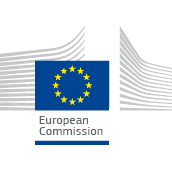
Develop Artificial Intelligence for diagnosis and treatment of paediatric cancer
Deadline: Aug 18, 2020
CALL EXPIRED
CALL EXPIRED
Pharmaceuticals
Medical equipment
Medical Biotechnology
Internet of Things (IoT)
Clinical trials
Artificial Intelligence
Scope:
- The European Commission adopted on 20 April 2020, a decision on the financing of pilot projects and preparatory actions in the field of "Communications Networks, Content and Technology" and on the adoption of the work programme for 2020[1].
- Paediatric cancers are a collection of diverse rare diseases that together represent individually life- threatening diseases and collectively a major public health issue. With 35,000 new cases and more than 6,000 children and young people dying each year in Europe, paediatric cancer remains the leading cause of death from disease for children and adolescents. Moreover, there are more than 300,000 European childhood cancer survivors (nearly half a million by 2020). Two-thirds of survivors live with the long-term treatment-related side effects that can be severe and impact on the daily life of half of those affected.
- Artificial Intelligence (AI) in is an important enabler of advancements in the field of health and care: it can unlock data insights needed to support data-driven decisions for diagnostics and treatments. In particular, AI has the potential to carry out complex tasks that are currently performed by specialists to improve diagnostic accuracy, increase efficiency of throughputs, improve clinical workflow, decrease human resource costs and improve treatment choices. In this sense, AI technologies have the potential to ease the burden on the health system and improve access to healthcare (e.g. screening) in remote or low resource areas. AI may also play a role in training healthcare professionals.
- The effective implementation of machine-learning and Artificial Intelligence technologies can bring solutions to many societal challenges, including improved diagnostic and treatment pathways. Integrated healthcare and research data platforms that collate information on clinical phenotypes, diagnostic tests (including pathology, genomics, radiological imaging), treatment interventions and clinical outcomes will be powerful tools towards early and accurate diagnoses, enable precision in stratification of patient cohorts according to therapeutic needs and facilitate development of new therapeutic innovation.
- The particularity of paediatric cancers being rare diseases necessitates a collaborative approach to collate and integrate the data collected in all Member States, including best practices and new technologies in order to further develop common solutions. The use of big data for better insights in cancer genesis, outcomes and the long-term side effects of treatments is currently under-developed. Artificial intelligence and machine learning are powerful tools allowing for complex data analytics on large-scale data sets with great potential for fostering precision cancer medicine for all young people in Europe.
- Further advances in the diagnosis and treatment of paediatric oncology will require multi-national, multidisciplinary integrated healthcare and research data platforms that will allow real world data simulations of machine-learning algorithms and artificial intelligence that can be exploited in data-driven clinical decision support applications that directly benefit patients
Specific objectives
- The project will support the development of multi-national approaches to facilitate capturing data on paediatric cancer from multiple sources, and build a multi-stakeholder network to explore the applications of Artificial Intelligence technologies in paediatric cancer.
- The project will develop a state-of-the-art report to help understanding the challenges, needs and gaps in capturing data on paediatric cancer across the Union or the EEA countries, or both.
- The project will develop a framework to find solutions and prioritise opportunities to bridge existing gaps with a multi-national, multi-disciplinary approach.
- Mapping and building on existing multi-disciplinary and multi-national platforms/datasets and registries, the project will pave the road to a one-stop shop European point of access for integrated healthcare and research data platforms that collate clinical data, including, for example, clinical history, relevant diagnostic tests (pathology, genomics, radiological imaging), treatment interventions and clinical outcomes for childhood cancers.
- The project will create a multi-stakeholder network to connect and facilitate the exchanges and dissemination of best practices in clinically relevant Machine-Learning and Artificial Intelligence technologies between all relevant stakeholders, including paediatric oncology, technology developers, and the European Reference Network for Paediatric Oncology (ERN PaedCan), and experiment on their application in relation to multi-national large-scale data sets.
- The project should focus on multiple applications, for example radiological imaging, digital pathology, integrated genotyping and outcome prediction algorithms and clinical decision-making.
Expected Impact:
- The project will support research and further collaboration on Artificial intelligence technologies applied for diagnosis and treatment of paediatric cancers. Project results are expected to cover a representative range of stakeholders and solutions across Union or the EEA countries, or both.
- The project is expected to link to and collaborate with relevant Union initiatives (including the European Reference Network for Paediatric Oncology, ERN PaedCan) and build on Union-funded projects (for example, the Paediatric Rare Tumours Network – PARTNER project).
Public link: Only for registered users
 Pilot Projects & Preparatory Actions
Pilot Projects & Preparatory Actions
Please Log In to See This Section